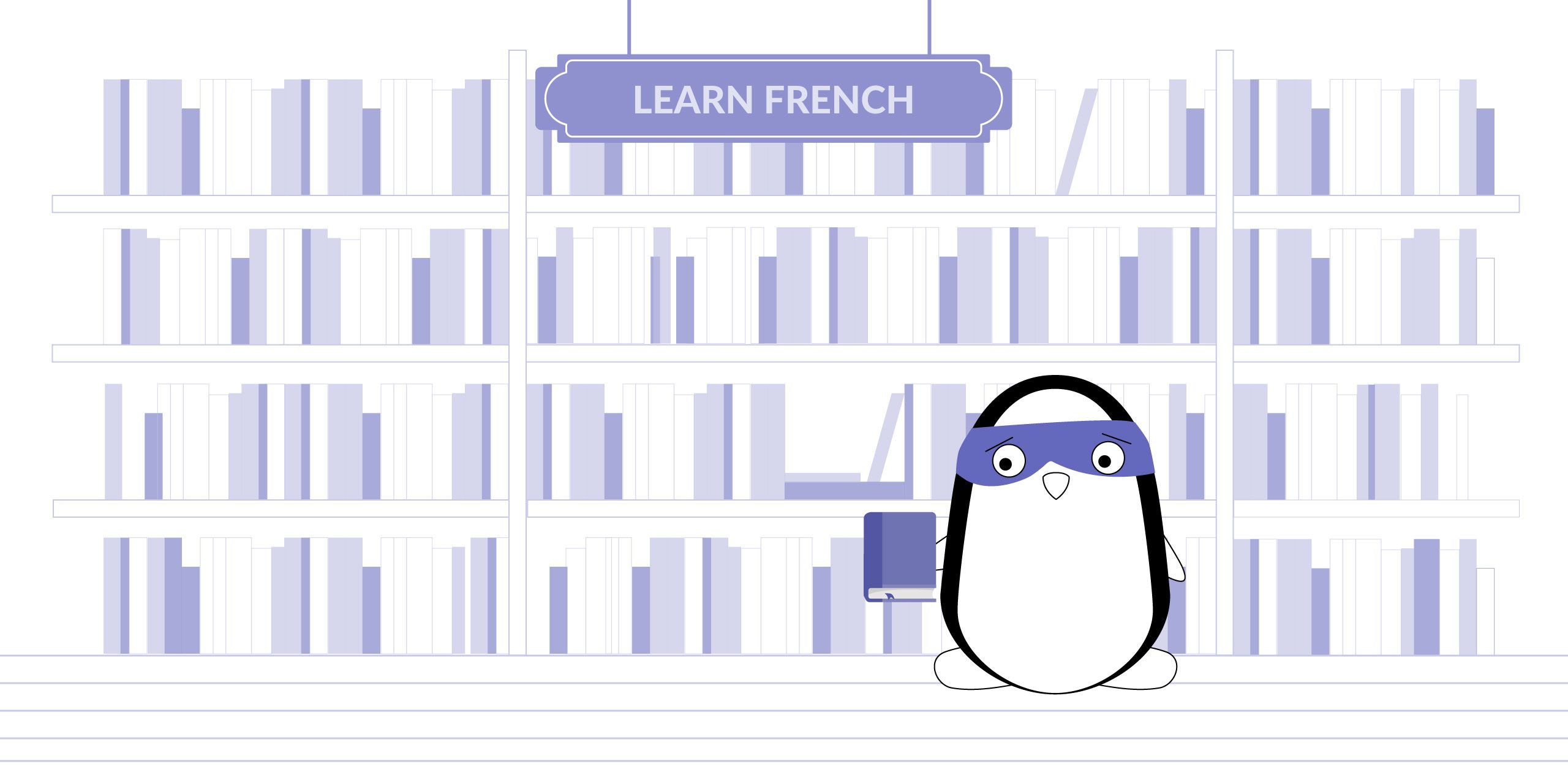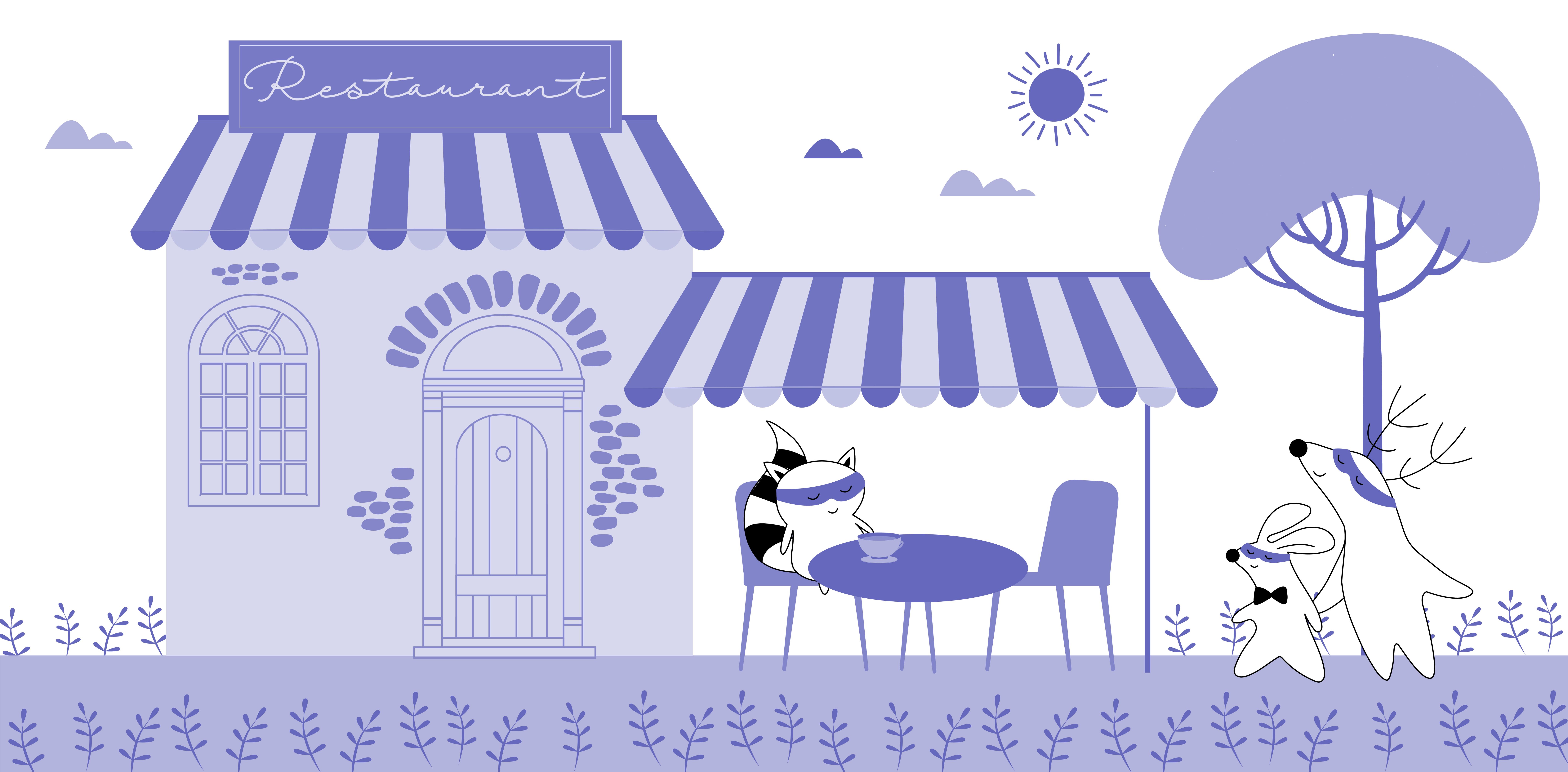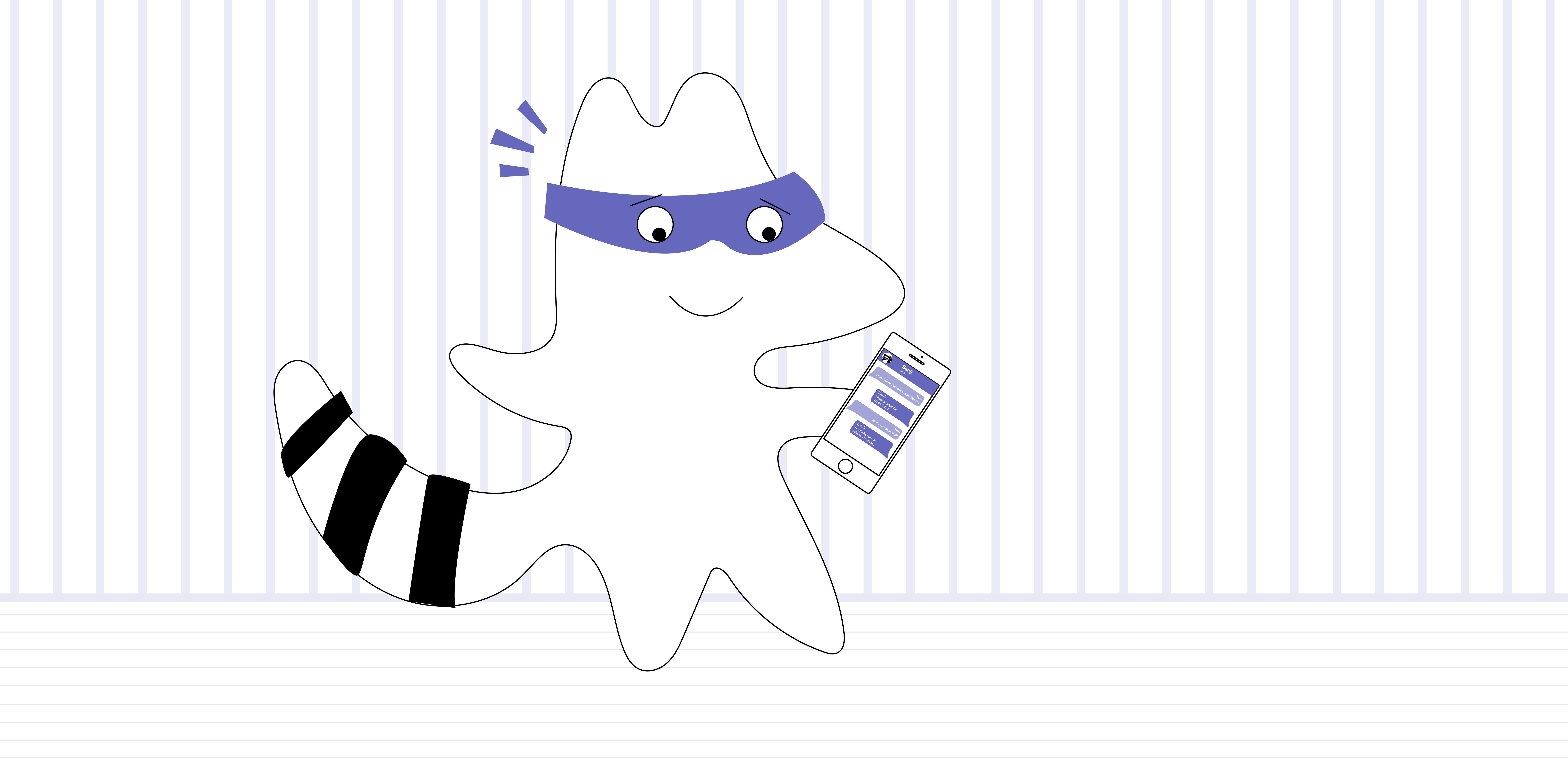
It's more common than ever these days for friends to communicate online or by text. In fact, being able to quickly message people from all over the world is an amazing asset for language learners!
However, if you've ever chatted with someone in French, you might have noticed that the way they talk isn't exactly the same as your textbooks. Native speakers often use slang in casual conversation, and this is especially true for using many abbreviations in text messages. If you're learning French, then this cultural aspect of the language can't be ignored.
So, here we present you with French texting abbreviations that will help you sound like a native speaker!
Learn French with Langster
Why Should You Learn French Text Lingo?
Learning French texting language won't just help you communicate more naturally and confidently with your French friends -- it's also genuinely useful! Texting shorthands save time and are perfect for quickly communicating information (and staying under character limits).
Plus, texting language is incredibly nuanced. If you've ever obsessed over someone ending a sentence with a period instead of an exclamation point, then you'll understand that many abbreviations can help you convey your tone and level of formality.
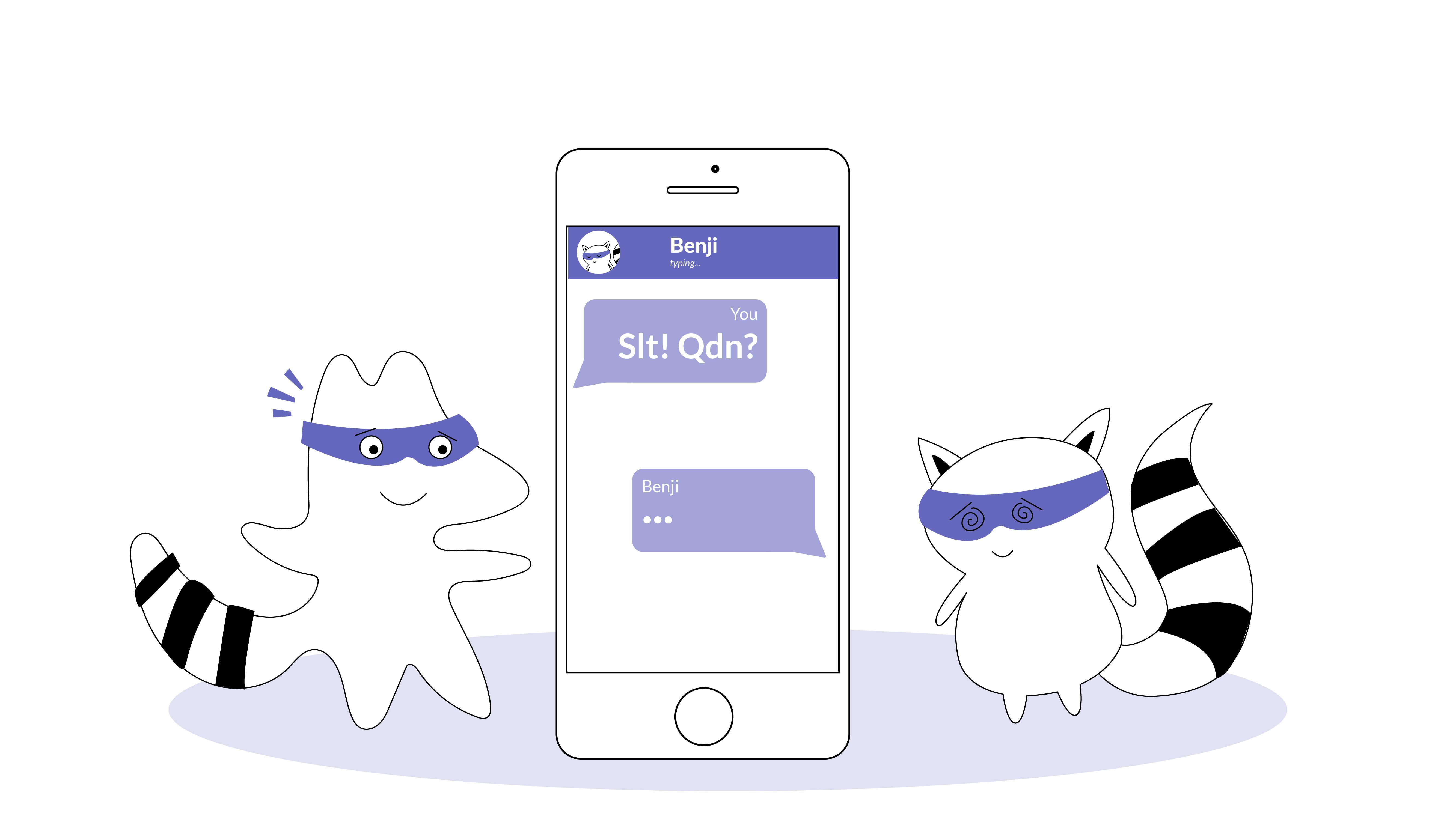
A Guide to French Text Abbreviations
Now that you know why you should learn about French texting slang, it's time to start actually learning! This list may seem long, and it's hardly exhaustive, but don't be alarmed -- it's easy once you understand a few simple patterns.
Simplifying Sounds
Similar to English phrases like "c u l8r," French texting lingo shortens words by using single letters , numbers, and occasionally symbols to stand in for longer letter combinations with a similar sound. To use an English example...
- See = C
- You = U
- Later = L8r
Here's a French version with the phrase:
- À demain (see you tomorrow):
- À = A
- de = 2
- ain = 1
Notice how even though the sounds are only approximately the same, the number 1 (pronounced "un") is used to replace "ain."
Convenient Lettering
Similarly, notice how in the above example, the accented vowel À is replaced by a normal A. The same thing the phrase ça va -- it changes to sa va to eliminate the special character. Text messaging is all about simplicity.
It is also common for words to be written with just enough letters for the point to get across, like bonjour being shortened to bjr. Silent letters like "e" or "h" are almost always removed.
Common Text Message Terms
For this list of French internet slang, we'll start with the abbreviation and full written form, then the English translation, along with the corresponding English abbreviation, if there is one.
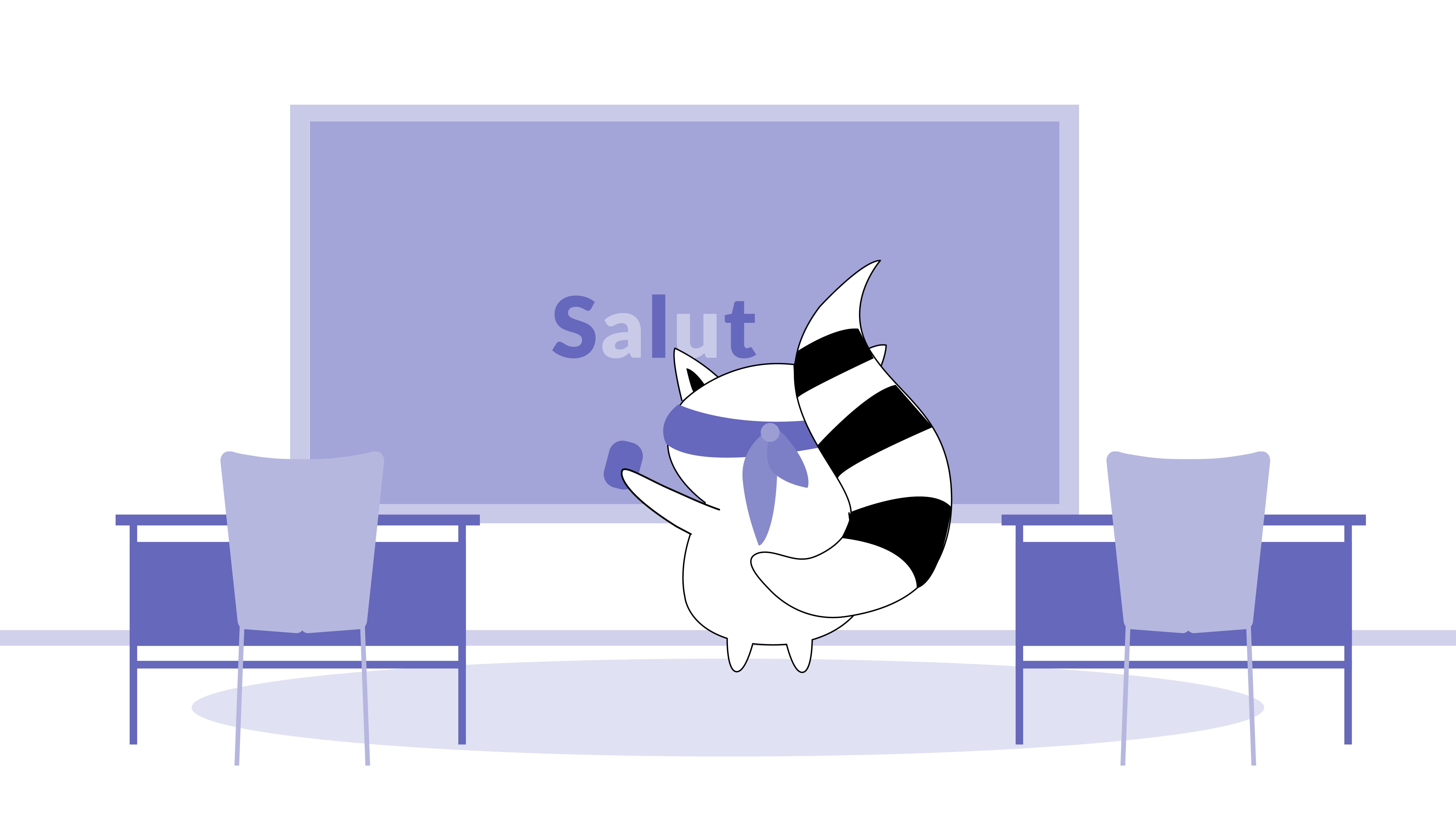
Greetings and Goodbyes
Cc =
French
English
Coucou/ [Hey
Hey/hi!
slt=
French
English
Salut
Hi!
Bjr =
French
English
Bonjour
Hello
Bsr =
French
English
Bonsoir
Good evening
A+ or ++ =
French
English
À plus tard
See you
A12C4 =
French
English
À un de ces quatre
See you one of these days
12C4 =
French
English
Un de ces quatre
One of these days
A TT =
French
English
À tout à l'heure
Talk to you later
Je re =
French
English
Je reviens tout de suite
Be right back
a2m1 =
French
English
À demain
See you tomorrow
ALP =
French
English
À la prochaine
See you next time
BIZ =
French
English
bisous, bises
Kisses
J'y go=
French
English
Je dois partir
I have to go
Questions
Pk =
French
English
Pourquoi?
Why?
Cki ? =
French
English
On se connaît ?
Do I know you?
QDN =
French
English
Quoi de neuf?
What’s new?
Sa va =
French
English
ça va
How are you?
Expressions
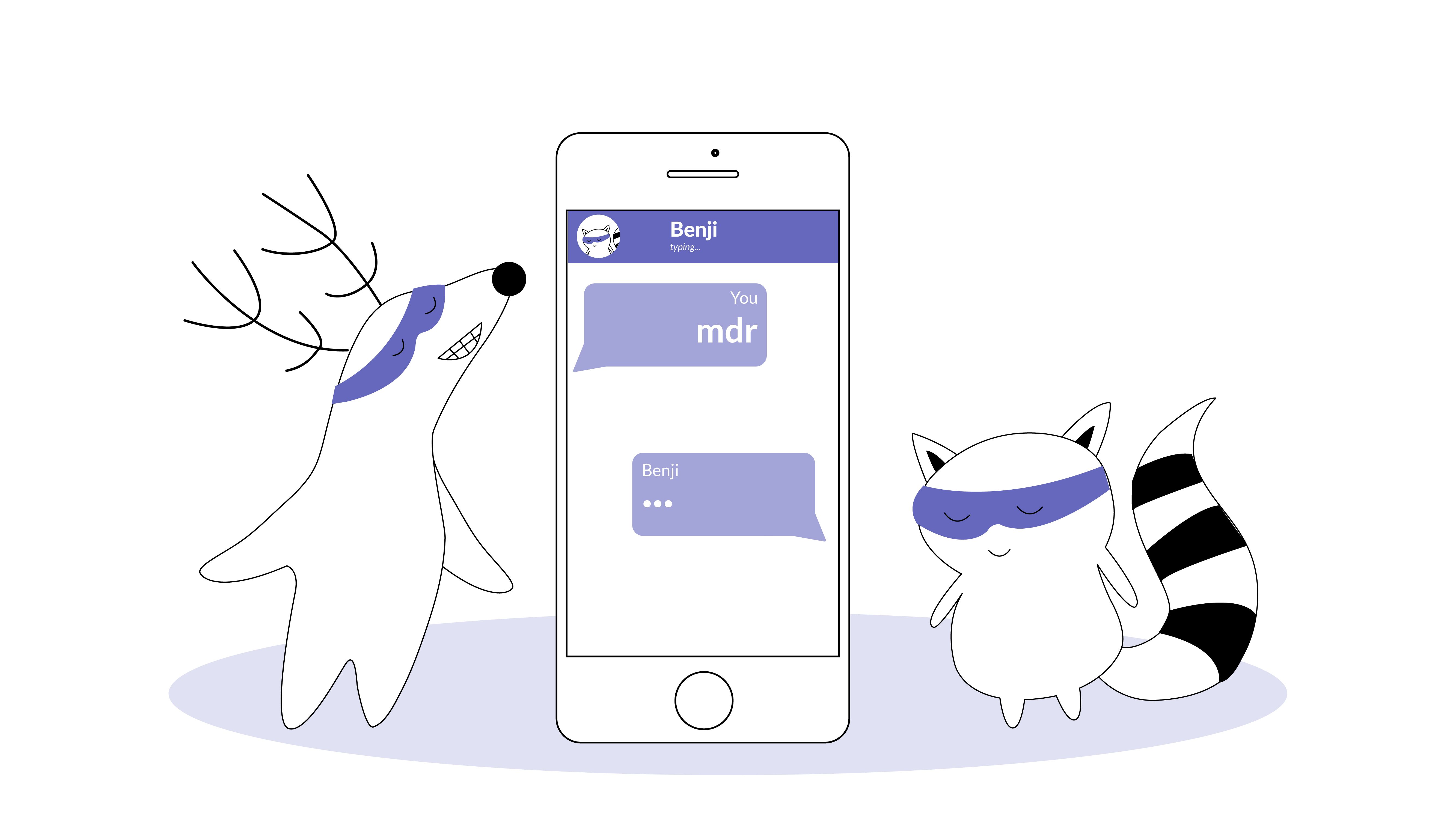
MDR =
French
English
Mort de rire
Dying of laughter
It’s the equivalent of LOL (laughing out loud).
EXPDR =
French
English
Explosé de rire
Exploding with laughter
The equivalent of ROFL (rolling on the floor laughing) or LMAO (laughing my ass off).
DDD =
French
English
Demande de discussion
We need to talk
CPG =
French
English
C’est pas grave/ [It’s no big deal
It’s no big deal/not a problem
DQP =
French
English
Dès que possible
As soon as possible
AM(H)A =
French
English
À mon (humble) avis
In my (humble) opinion
AMS =
French
English
À mon sens
As I understand it
C1Blag =
French
English
C'est une blague
It's a joke
RSTP =
French
English
Réponds, s'il te plaît
Respond, please
PEH =
French
English
Pour être honnête
To be honest
MDA =
French
English
Merci d'avance
Thanks in advance
Mci =
French
English
Merci
Thanks; thnx
STP =
French
English
S'il te plaît
Please; pls or plz
SVP =
French
English
S'il vous plaît
Please
Dsl =
French
English
Desolé
Sorry; sry
JTM or Je t’M =
French
English
Je t’aime
I love you
JSG =
French
English
Je suis génial
I’m doing good
TKT =
French
English
T’inquiète
Don’t worry
Other Useful French Slang
C =
French
English
C’est
It's
C Ca =
French
English
C’est ça
That's it
CT=
French
English
C’était
It was
G =
French
English
J’ai
I have
GT=
French
English
J’étais
I was
QQ1 =
French
English
Quelqu’un
Someone
QQC =
French
English
Quelque chose
Something
RAS =
French
English
Rien à Signaler
Nothing to report
tt =
French
English
Tout/ [All
All/Everyone
Auj =
French
English
Aujourd’hui
Today
DAC =
French
English
D’accord
Alright
b1sur =
French
English
Bien sûr
Of course
ENTK =
French
English
En tout cas
Anyway
Pr toi =
French
English
Pour toi
For you
Bcp =
French
English
Beaucoup
A lot
bi1to =
French
English
Bientôt
Soon
CB1 =
French
English
C’est bien
That’s good
CAD =
French
English
C’estàdire
That is
FDS =
French
English
Fin de semaine
Weekend
JMS =
French
English
Jamais
Never
TJS =
French
English
Toujours
Always
KDO =
French
English
Cadeau
Gift
TLM =
French
English
Tout le monde
Everyone
RDV =
French
English
Rendez-vous
Catch up
RAF =
French
English
Rien à faire
Nothing to do
V1 =
French
English
Viens
Come
Slang Etiquette: Being Polite While Texting in French
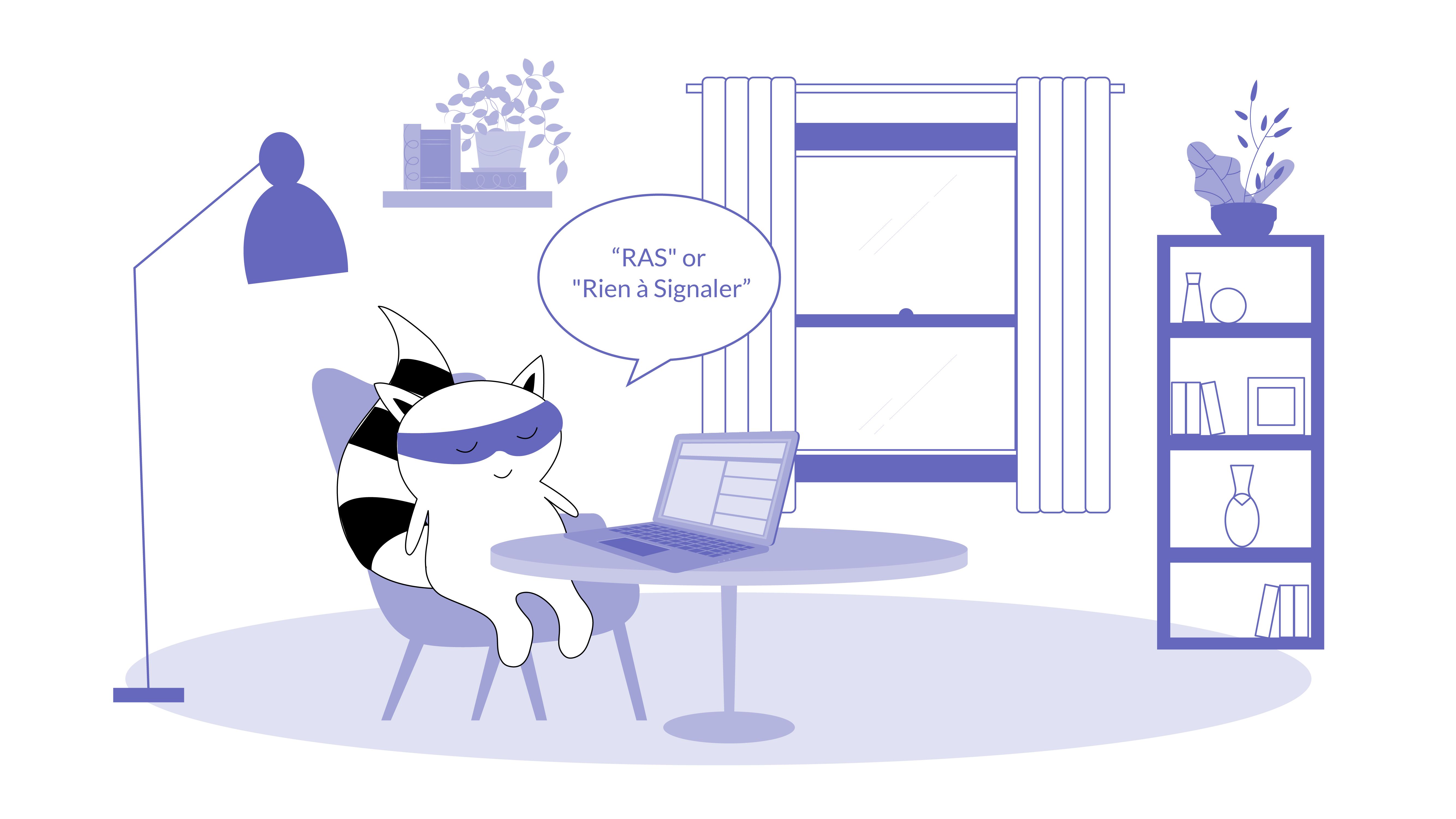
Did you notice how almost all the included phrases used tu rather than vous when directed at another person? French people value politeness and respect, so be careful.
Slang is considered more informal and is usually used among friends and peers, but it depends on the context. Using some shorthand abbreviations in a quick update to a colleague probably won't get you in trouble. However, when in doubt, remember your nétiquette rules, and write things out in full.
The Bottom Line
Texting utilizes a lot of convenient shorthand that may seem strange to beginning French learners, but all it takes is a little practice! Soon, you'll sound like a native when you message your French friends.
But, as always, if you aren't quite ready to jump into a conversation with a French person, why not check out Langster? By reading and listening to short stories at your level, you'll quickly gain the knowledge you need to succeed on your language-learning journey.






